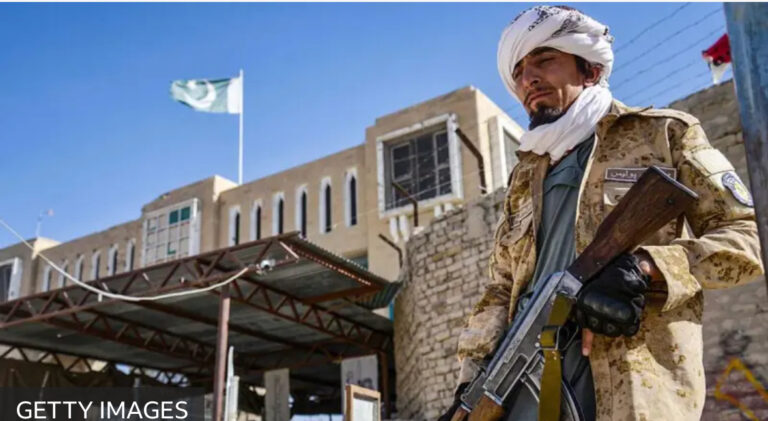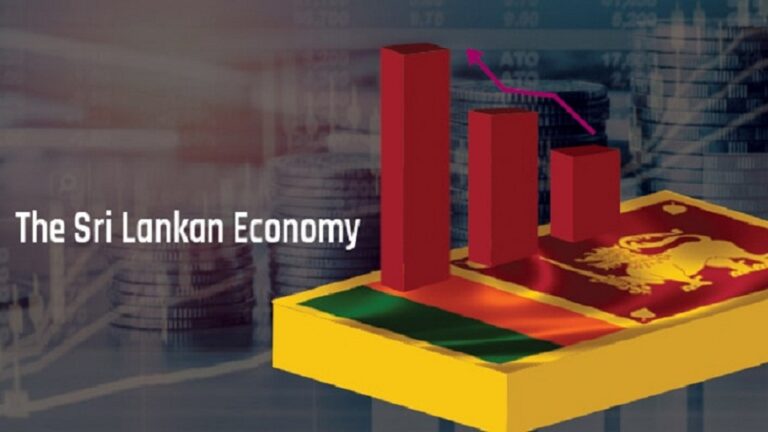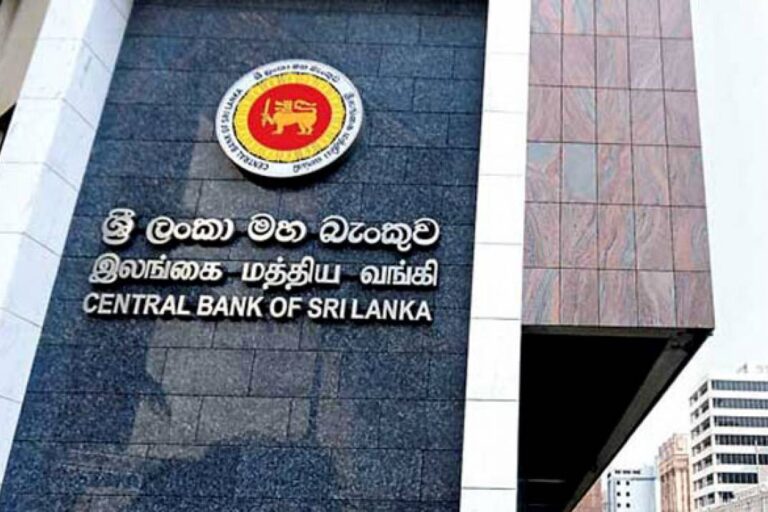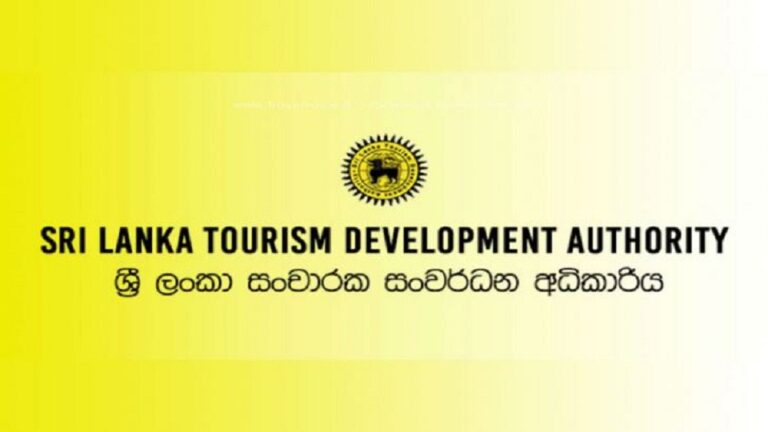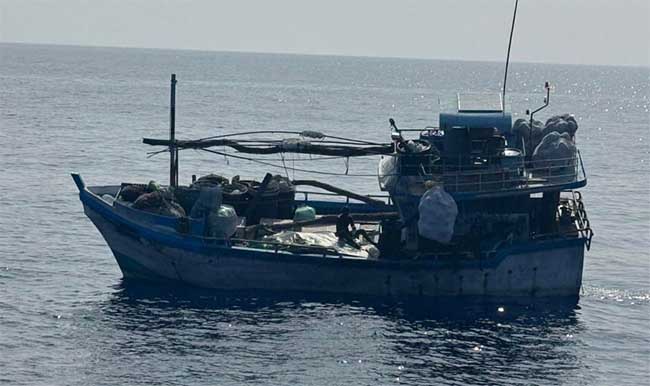December 07, Colombo (LNW): The Northeast monsoon condition is gradually establishing over the island, the Department of Meteorology said in its daily weather forecast today (07).
Several spells of showers will occur in Northern, North-Central, Eastern Uva provinces and in Matale and Nuwara-Eliya districts.
Showers or thundershowers will occur in the other areas of the island after 1.00 p.m. Fairly heavy falls above 50 mm are likely at some places in Western and Sabaragamuwa Provinces and in Galle and Matara districts.
Misty conditions can be expected at some places in Western, Sabaragamuwa, Central and Uva provinces during the early hours of the morning.
The general public is kindly requested to take adequate precautions to minimise damages caused by temporary localised strong winds and lightning during thundershowers.
Marine Weather:
Condition of Rain:
Showers or thundershowers are likely at several places in the sea areas off the coast extending from Batticaloa to Puttalam via Trincomalee and Kankasanthurai. Showers or thundershowers may occur at several places in the sea areas off the coast extending from Puttalam to Matara via Colombo and Galle in the evening or night.
Winds:
Winds will be North-easterly in the sea areas around the island. Wind speed will be (20-30) kmph. Wind speed can increase up to 45 kmph at times in the sea areas off the coast extending from Puttalam to Kankasanthurai via Mannar.
State of Sea:
The sea areas off the coast extending from Puttalam to Kankasanthurai via Mannar may be fairly rough at times. The other sea areas around the island may be slight to moderate. Temporarily strong gusty winds and very rough seas can be expected during thundershowers.
Northeast monsoon condition gradually establishes over the Island: Showers expected (Dec 07)
Fresh Border Clashes Erupt Between Pakistan and Taliban Forces Despite Recent Ceasefire
Tensions along the Pakistan and Afghanistan frontier escalated once again as fierce clashes broke out overnight, with both sides accusing the other of violating a fragile ceasefire agreement. The latest fighting forced residents of Spin Boldak, a key Afghan border city along the 1,600 mile (2,600 km) frontier, to flee in large numbers.
Medical officials in Kandahar confirmed to BBC Pashto that four bodies had been brought to a nearby hospital, while four others were treated for injuries. Reports from Pakistan indicated at least three additional casualties.
The two countries have experienced recurring skirmishes in recent months, with the Taliban administration repeatedly accusing Pakistan of launching air strikes inside Afghan territory. Islamabad, meanwhile, maintains that militant groups sheltering in Afghanistan continue to orchestrate attacks inside Pakistan.
Four Hours of Heavy Fire
Both governments confirmed that they exchanged fire overnight but each insists the other side initiated hostilities.
Mosharraf Zaidi, spokesperson for Pakistan’s Prime Minister Shehbaz Sharif, described the incident as “unprovoked firing” by Taliban forces.
“An immediate, befitting and intense response has been given by our armed forces,” his statement read. “Pakistan remains fully alert and committed to safeguarding its territorial integrity and citizens.”
The Taliban, however, rejected those accusations. A spokesperson for the Afghan government stated that Pakistan had “once again initiated attacks,” forcing Taliban forces to respond defensively.
Eyewitnesses on the Afghan side said the exchange began at around 22:30 local time (18:00 GMT) on Friday. Videos from the area showed crowds of families escaping on foot and by vehicle as artillery echoed across the border.
Ali Mohammed Haqmal, head of Kandahar’s information department, accused Pakistan of using both light and heavy artillery, claiming that several civilian homes had been struck by mortar rounds.
Ceasefire Under Strain
The renewed violence comes less than two months after Pakistan and the Taliban reached a ceasefire mediated by Qatar and Turkey. That agreement ended more than a week of clashes, the deadliest since the Taliban seized power in 2021, which left dozens dead and raised concerns about regional stability.
Despite the ceasefire, distrust between the two neighbours has persisted. Islamabad continues to allege that Afghanistan provides safe haven to militant groups, including the Pakistan Taliban (TTP), which has carried out at least 600 attacks on Pakistani forces over the past year, according to the Armed Conflict Location and Event Data Project (ACLED).
The Taliban government denies offering sanctuary to any armed groups, accusing Pakistan of externalising its own security failures.
Negotiations Continue Without Breakthrough
Delegations from both countries met in Saudi Arabia last week for a fourth round of talks aimed at achieving a broader peace agreement. However, the discussions ended without major progress.
Sources familiar with the negotiations told BBC News that both sides had reaffirmed their commitment to the ceasefire, even as the situation on the ground remains volatile.
With cross border tensions escalating again, the durability of the ceasefire and the prospects for a lasting political settlement face renewed uncertainty.
Sri Lanka’s First Post-Crisis Dollar Bond Signals Renewed Investor Faith
Sri Lanka’s return to foreign-currency borrowing took a significant step forward this week, with the Government successfully securing the full US$50 million sought from its first Domestic Dollar Bond issue since the 2022 debt crisis. The auction, conducted by the newly established Public Debt Management Office (PDMO) rather than the Central Bank, drew US$89 million in total bids — a level of demand that officials describe as a “strong vote of confidence” in the country’s stabilisation trajectory.
The issuance marks more than a routine borrowing exercise. It is the first test of whether domestic financial institutions are willing to place dollar liquidity in Government instruments after the trauma of the sovereign default, when confidence collapsed and foreign-currency debt markets froze. The robust oversubscription signals that local banks now view Sri Lanka’s short-term macroeconomic and external-sector conditions as improving, supported by disinflation, steadier reserves and progress on external debt restructuring.
The breakdown of bids reveals investor preference for shorter tenors amid lingering risk perceptions. The one-year bond attracted US$45.5 million in bids, with US$33 million accepted at a 5.7% fixed rate, while the two-year tranche drew US$42.5 million, of which US$17 million was accepted at 6.1%. In contrast, the three-year maturity received only US$1 million, and authorities rejected the offer entirely a reflection both of cautious investor sentiment and the Government’s intention to avoid locking in higher long-term costs.
Financial analysts say the pricing, although above pre-crisis levels, represents a workable middle path for a country still rebuilding trust. The rates suggest that domestic banks perceive lower sovereign risk than in 2023–24, yet still demand a meaningful risk premium for lending dollars to the Treasury.
The bond’s broader economic significance lies in three areas. First, it helps diversify the Government’s funding base away from purely rupee borrowing, easing pressure on domestic interest rates and the banking system’s liquidity. Second, by tapping local dollar savings rather than external commercial markets, the State avoids the higher costs and refinancing risks associated with international sovereign bonds an essential consideration while the country remains unrated by some agencies and only gradually regaining credit credibility.
Third, the issuance functions as a signalling tool. A successful dollar-denominated auction indicates to external creditors and multilateral institutions that Sri Lanka’s financial system is stabilising and able to support selective foreign-currency funding. It also strengthens the PDMO’s mandate to manage public debt independently, a key structural reform under the IMF programme.
The Finance Ministry has left the door open to tripling the size of the programme depending on future requirements and market appetite. But analysts caution that careful pacing is essential: premature expansion could strain dollar liquidity, while measured issuance could gradually rebuild market depth without destabilising the banking sector.
For now, the auction stands as a cautiously optimistic milestone, the first clear sign since the crisis that Sri Lanka can re-enter dollar markets on its own terms.
HSBC Exit Marks Shift toward Local Dominance in Banking
HSBC’s decision to exit Sri Lanka’s retail banking business—now set to be acquired by Nations Trust Bank (NTB) for Rs. 18 billion signals a deeper transition underway in the island’s financial sector: the steady retreat of international retail operators and the corresponding rise of homegrown institutions as the primary custodians of domestic savings and consumer credit.
While NTB’s acquisition is positioned as a strategic growth move, the broader implications point to a global banking realignment. Over the past decade, large multinational banks have increasingly scaled down operations in smaller markets, favouring regions with higher returns and lower regulatory cost burdens. HSBC’s withdrawal fits this pattern, although the bank will continue its corporate and investment banking services in Sri Lanka.
For Sri Lankan depositors, the shift raises important questions about access to international banking networks, foreign currency services and the level of global integration typically associated with institutions like HSBC. Many customers—including expatriates, entrepreneurs and high-net-worth individuals valued HSBC for its global connectivity more than its domestic presence. The transition to NTB will therefore be scrutinised for its ability to maintain cross-border service quality, digital efficiency and wealth-management capabilities.
For NTB, the deal provides a once-in-a-generation opportunity to expand scale. Gaining nearly 200,000 new customers will significantly deepen its footprint in the premium segment, positioning it as a stronger contender among mid-sized banks. The larger deposit base will improve liquidity ratios, enhance lending power and strengthen the bank’s stability profile—key advantages at a time when Sri Lanka’s financial sector is emerging from currency pressures, non-performing loan challenges and capital adequacy demands.
Economists say the transition could have a stabilising effect on the financial ecosystem. Allowing a domestic bank to absorb a foreign bank’s retail operations prevents market disruption, protects customer deposits, and ensures continuity in loan servicing. It also means that profits and economic value generated from retail banking will increasingly remain within local institutions, potentially strengthening domestic capital formation.
However, the shift also underscores Sri Lanka’s need to modernise its banking environment to remain attractive to global players. As multinational banks exit, the burden falls on domestic institutions to uphold internationally recognised service standards, digital capabilities and compliance frameworks.
HSBC and NTB have jointly committed to a seamless transition, with regulators closely supervising the handover. While the move marks the end of an era of foreign retail banking presence in Sri Lanka, it also opens a chapter where domestic banks play a more influential role in shaping the country’s financial future. The success of this transition will be measured by how well customer trust is retained and how effectively NTB leverages this expansion to modernise and strengthen the wider banking landscape.
Sri Lanka Set for Strong Market Upswing as Stability, Lift Investor Confidence
Sri Lanka’s capital market is entering its most promising phase in a decade, backed by political stability, an improving macroeconomic outlook, and undervalued equities that present “a strong platform for growth,” according to AFC Asia Frontier Fund Co-Fund Manager Ruchir Desai.
Speaking at the Sri Lanka Economic Summit organised by the Ceylon Chamber of Commerce, Desai said Sri Lanka now stands out among frontier markets for having restored both political and economic stability ytwo conditions he described as essential for sustained investor interest. Having tracked Sri Lanka since 2014 alongside Bangladesh, Pakistan, Vietnam, Kazakhstan and Georgia, he noted that the 2018–2023 turbulence has now decisively given way to recovery.
Desai revealed that the Fund sharply increased its exposure to Sri Lanka after his November 2022 visit, identifying that moment as the “bottom” of the crisis. With the market then trading at just four times forward earnings, the Fund made Sri Lanka its second-largest country allocation, benefitting from both rising prices and improving fundamentals.
“For the first time in many years, Sri Lanka has both economic and political stability. The platform is set for steady growth over the next three to four years, provided this stability holds,” he said. While acknowledging the recent natural disaster as a setback, Desai stressed that markets are forward-looking and Sri Lanka has recovered from worse shocks.
Despite a strong 2.5-year rally, he argued that local equities remain undervalued. The broader market trades at around 11 times earnings, still below the 14–16 times levels seen during the 2014–2016 period when foreign participation was significantly higher. He added that fundamentals have rebounded across banking, consumer, and industrial sectors, with earnings, return on equity and credit growth improving in line with macro recovery.
To illustrate the valuation gap, Desai compared Commercial Bank of Ceylon with Vietnam’s Vietcom Bank: “Commercial Bank trades at nearly one-time book value, versus 2.5 times for its Vietnamese peer, despite stronger earnings momentum here,” he said. Consumer groups such as Sunshine Holdings also show regional-level earnings strength while still trading at modest valuation multiples.
Foreign investor activity remains well below pre-2018 levels now just 5–10% of daily turnover but Desai noted this is part of a global shift as funds chased exceptional returns in the US market. He expects foreign inflows to resume by 2026–2027 if policy stability persists. However, he emphasised that Sri Lanka must deepen domestic participation, as only 11–12% of unit trust assets are invested in equities.
Long-term advantages such as strong corporate governance, transparent disclosures, well-established companies, and underdeveloped sectors like logistics and tourism still position Sri Lanka attractively. With market-cap-to-GDP at just 25%, substantial runway for expansion remains.Calling Sri Lanka a “high-conviction market” for the Fund, Desai said the country is well-placed for continued outperformance provided it maintains reforms and avoids policy slippage
New Tariff Policy Aims to End Decades of Protectionist Drift
Sri Lanka is preparing to introduce a landmark national tariff policy by mid-2026, marking what officials describe as the most sweeping overhaul of the country’s trade and import tax system in decades. The Trade, Commerce and Food Security Ministry says the reform will replace a long-criticised structure of ad-hoc, sector-driven protection that has undermined competitiveness, discouraged innovation, and locked the economy out of global value chains.
Speaking at the Sri Lanka Economic Summit hosted by the Ceylon Chamber of Commerce, Ministry Secretary K.A. Vimalenthirarajah said the new policy will shift the country away from a revenue-driven, protectionist approach toward a predictable, rules-based framework aligned with international trade standards.
He noted that global institutions such as the World Bank have repeatedly flagged Sri Lanka’s tariff regime as one of the most complex worldwide, creating uncertainty, raising production costs, and limiting the ability of local firms to scale regionally.
According to Vimalenthirarajah, the new framework is anchored on four pillars: ensuring predictability, simplifying the tariff maze, replacing long-term protection with targeted and time-bound support for infant industries, and lowering input costs to enhance participation in global and regional supply chains. He argued that decades of using tariffs as a catch-all tool of economic management have weakened entrepreneurship by shielding firms from competition instead of encouraging productivity and innovation.
The reform, he said, will be particularly critical for transforming inward-looking SMEs into outward-oriented exporters and supporting diversification goals outlined by the Export Development Board. Cabinet has already approved the establishment of a National Tariff Committee and a Ministerial Tariff Committee to finalise the structure ahead of rollout next year.
Vimalenthirarajah stressed that tariff reform is inseparable from Sri Lanka’s broader trade agenda, including ongoing negotiations and reassessments of Free Trade Agreements (FTAs). A Cabinet-appointed committee is currently reviewing existing FTAs to craft a national strategy focused on diversification into Asian, African and Middle Eastern markets.
He also confirmed that Sri Lanka has been invited to join the ASEAN Free Trade Area (AFTA)—an opportunity now under technical evaluation to determine long-term strategic benefits.
The Secretary underscored that FTAs require phased tariff reductions, sometimes over two decades, and demand strict compliance with rules of origin, SPS and TBT standards—areas in which Sri Lanka has historically underperformed, leaving many preferential market access schemes under-utilised.
Non-tariff barriers, now more influential than tariffs globally, remain a growing concern. Sri Lanka, he said, is intensifying engagement with the US and other partners to dismantle such obstacles.
As part of wider reforms, the Government plans to fully implement the remaining 14 WTO-aligned intellectual property agreements within three years, while accelerating the National Single Window and other trade-facilitation measures aimed at reducing Customs delays and strengthening regulatory predictability.“Sri Lanka cannot afford isolation,” Vimalenthirarajah said, emphasising that deeper regional integration, modern FTAs and a transparent tariff regime are essential to restoring investor confidence and unlocking export-led growth
IRD Extends 2024/2025 Income Tax Return Deadline Due to Cyclone Ditwah Disruptions
The Inland Revenue Department (IRD) has announced an extension for filing Returns of Income for the 2024/2025 assessment year, following severe disruptions caused by Cyclone Ditwah and widespread adverse weather across the country.
Tax returns were originally due on November 30, 2025, but the IRD stated that many taxpayers and tax representatives were unable to meet the deadline due to nationwide operational difficulties.
As a result, the IRD has granted a grace period, confirming that returns submitted on or before December 31, 2025, will not incur penalties, assessments, or criminal proceedings related to late filing.
The Commissioner General of Inland Revenue has encouraged all remaining taxpayers to make use of the extended deadline and complete their submissions within the new timeframe.
CBSL Directs Banks to Provide Relief for Those Affected by Adverse Weather
The Central Bank of Sri Lanka (CBSL) has issued a new circular instructing all licensed banks to extend relief measures to individuals and businesses whose income or operations have been directly impacted by the ongoing adverse weather conditions.
Under the directive, banks are required to implement the following measures:
- Suspension of Loan Repayments:
Licensed banks may suspend the repayment of capital and/or interest on existing credit facilities for a period of 3 to 6 months, on a case-by-case basis. This decision should consider the borrower’s risk level, future repayment capacity, and medium-term viability in the post-disaster environment. - New Loan Facilities:
Banks are encouraged to grant new loan facilities to affected individuals and businesses after evaluating their debt servicing ability, subject to existing regulatory requirements. - No Rejection Solely Based on CRIB Records:
Banks must not reject new loan applications solely due to adverse Credit Information Bureau (CRIB) records.
Additionally, licensed banks have been instructed to report all relief measures granted or rejected under this circular to the Director of Bank Supervision by the end of each month. The reporting must begin on 31 December 2025 and be submitted within 15 calendar days of each month’s end.
The CBSL said the measures aim to ease financial pressures on affected citizens and support economic recovery in the aftermath of the disaster.
Sri Lanka Briefs Diplomatic Community on Disaster Response, Tourism Safety & Recovery Plans
A special briefing for the diplomatic community in Sri Lanka was held at the Ministry of Foreign Affairs, Foreign Employment and Tourism, chaired by Prime Minister Dr. Harini Amarasuriya and Minister Vijitha Herath.
Senior officials from the Disaster Management Centre (DMC) and the Sri Lanka Tourism Development Authority (SLTDA) were also in attendance.
Prime Minister Amarasuriya expressed deep appreciation to the diplomatic community for their swift support following the recent floods and landslides. She noted that although Sri Lanka experienced one of its most severe disasters in recent years, rapid government response and public resilience had enabled significant progress in relief and recovery operations.
The Prime Minister confirmed that no tourists were harmed during the disaster and that all previously inaccessible areas are now reachable. Massive cleanup and decontamination efforts are ongoing, and communications have been restored across affected regions.
She highlighted that relief, evacuation, and emergency assistance were carried out through the collective efforts of the tri-forces, police, health workers, volunteers, and local authorities. Remaining challenges include infrastructure restoration, resettlement, and long-term disaster mitigation. She welcomed the humanitarian, technical and financial support offered by Sri Lanka’s international partners.
DMC Director General Maj. Gen. (Retd) Sampath Kotuwegoda presented detailed updates, noting that 22 districts were severely affected, with some areas recording up to 540 mm of rainfall and winds of 70 km/h. Early assessments show that 2.3 million people were exposed, 1.8 million directly affected, and 1.1 million hectares of land impacted. This includes 40,152 pregnant women, who have been prioritised for assistance.
He highlighted areas where further international support—such as improved early-warning systems and climate-response technology—would be valuable.
SLTDA Chairman Buddhika Hewawasam assured diplomats that major tourist zones remain operational, and safety assessments and contingency plans are in place for the peak season.
Chairman of the Hotel Association of Sri Lanka, Ashoka Hettigoda, noted that coastal hotels from Marawila to Passikudah remain fully operational, many at 60–65% occupancy, while hotels in Nuwara Eliya are partially functioning. He emphasised that ongoing tourism support is the best assistance the international community can offer Sri Lanka at this time.
Diplomats extended condolences to affected communities and reaffirmed readiness to support both immediate relief efforts and long-term rebuilding. They commended the government’s transparent and coordinated crisis management.
Prime Minister Amarasuriya thanked all representatives for their cooperation and reiterated the government’s commitment to a resilient, inclusive recovery. She stressed that strengthening disaster preparedness, climate resilience, and institutional capacity would be central to Sri Lanka’s future development agenda.
The meeting was also attended by Deputy Minister Arun Hemachandra, Secretary to the Prime Minister Pradeep Saputhanthri, and Foreign Ministry Secretary Aruni Ranaraja.
Large Consignment of Narcotics Seized After Abandoned Boat Found in Kalpitiya
The Sri Lanka Navy has recovered a large consignment of narcotics, including 63.5 kilograms of Crystal Methamphetamine (Ice) and more than 14.5 kilograms of heroin.
According to the Navy Spokesperson, the drugs were discovered on a boat that had been abandoned by its crew on the beach at Ippantivu, Kalpitiya.


